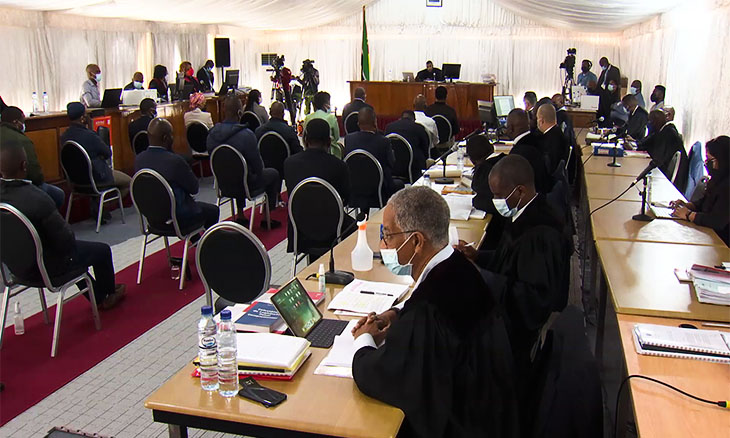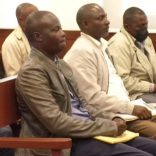Mozambique: District Permanent Secretary questioned for embezzlement - AIM | Watch
Hidden debts: Defence demands special status for SISE agents – AIM report

Photo: O País
As the trial opened in Maputo of the 19 people charged with embezzlement, money laundering corruption and other crimes in the case of Mozambique’s largest ever financial scandal, known as the “hidden debts”, defence lawyers demanded that those defendants who are agents of the State Security and Intelligence Service (SISE) should be released from preventive detention and allowed to respond to the charges against them in conditional freedom.
Three of the defendants used to work for SISE – they are Gregorio Leao, who was the general director of SISE under the government of former president Armando Guebuza, the former head of the SISE studies and project office, Cipriano Mutota, and the former director of economic intelligence, Antonio do Rosario, who became chairperson of the three fraudulent, security-linked companies at the heart of the scandal, Proindicus, Ematum (Mozambique Tuna Company) and MAM (Mozambique Asset Management).
Immediately the trial opened, the lawyers for these defendants insisted that their clients must be released from preventive detention. They raised as a “prior question” a law on the status of SISE from 2012 which apparently grants SISE agents accused of crimes immunity from detention. “They can’t be in prison!”, declared Rosario’s lawyer, Alexandre Chivale.
The prosecuting attorney, Sheila Marrengula, retorted that the immunity from detention mentioned in the 2012 law only concerned crimes committed in the pursuit of SISE duties, “but the facts mentioned in the indictment have nothing to do with SISE work”.
The job of SISE agents was to defend the Mozambican state, not steal from it, she declared.
The judge, Efigenio Baptista, agreed. The limited immunity granted to SISE agents, he said, was explicitly for allegedly criminal acts “practiced in the interest of the state”.
“Are these offences in the interest of the state?”, he asked. He suggested that the crimes mentioned in the indictment in reality undermined the interests of the Mozambican state.
Furthermore, at every stage in the pre-trial investigations, Antonio do Rosario had claimed that his SISE status entitles him to be released from preventive detention – and every judge who had heard this claim, including members of the Supreme Court, had rejected it.
Indeed, in a dispatch last week, which Chivale said he had not received, Baptista had fined Rosario for what he regarded as his frivolous behavior. On Rosario’s behalf, Chivale had submitted the same argument on at least three earlier occasions. Baptista thought Rosario should not get away again with a “manifestly baseless” claim and so fined him five times the monthly minimum wage (equivalent to about 350 US dollars).
Marrengula also raised prior questions – regarding assets belong to two of the defendants which the first investigating magistrate on the case had ordered seized, since they were purchased with money from the bribes paid by the Abu Dhabi based group, Privinvest.
But it seemed that flats owned by Rosario on Maputo’s coast road had not been seized at all, but had merely been put into the “safe keeping” of the company Txopela Investments, of which Chivale was the manager. Indeed, Chivale was living in one of the flats
Marrengula argued that the man behind Txopela Investments was Rosario, who had used it for money laundering purposes. She demanded that Chivale be ordered to leave the flat within 72 hours and, if he refused to go, the police should remove him by force. All seized properties, she pointed out, should be put into trust with the National Directorate of Assets in the Finance Ministry.
The prosecutor said a second Rosario property, in the central city of Quelimane, should also have been seized, but there was no information on what had happened to it.
A third case involved a central Maputo flat, owned by another defendant, Bruno Langa. A court had ordered this to be seized – but even after that order, Langa had sold it. Marrengula demanded that the new owner be evicted and the flat be handed over to the national directorate of assets.
Baptista promised to rule on these issues later in the trial.
These, and other, procedural issues took up the entire morning, and so it was not until early afternoon that Marrengula could read out the lengthy indictment.













Leave a Reply
Be the First to Comment!
You must be logged in to post a comment.
You must be logged in to post a comment.